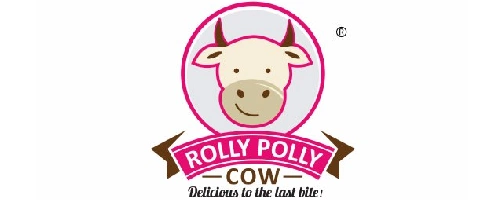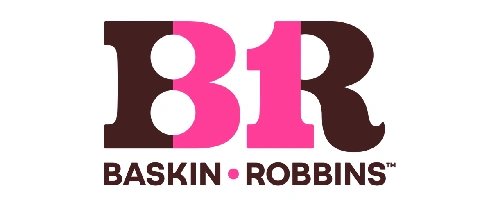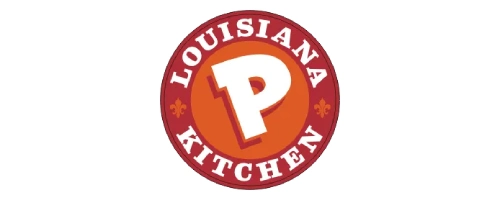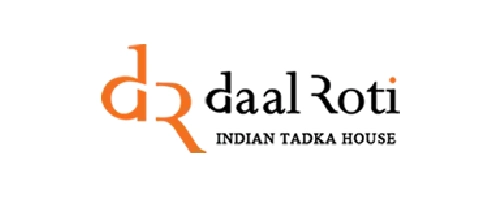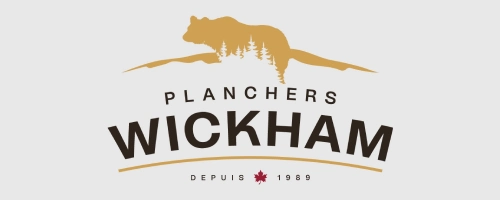Select tiles based on your style, lifestyle, and the room’s needs. Consider paint schemes, moisture levels, foot traffic, and maintenance. We can help you find the perfect fit.

Faq's
Frequently Asked Questions
-
How do I choose floor tiles?
-
What types of tiles are best for flooring?
It depends on your style, lifestyle, and room environment. For example, tiles are great for bathrooms due to moisture resistance. We offer a range of options to match your needs.
-
What is the most durable floor tile?
Porcelain tiles are highly durable, resisting water, stains, and damage. They come in various textures, colors, and patterns, combining durability with aesthetic appeal.
-
How do I care for tile floors?
Sweep or vacuum daily and mop weekly. For grout, use a soapy solution and a stiff brush. Always follow the manufacturer’s care instructions.
-
How do I clean a stained tile floor?
Tile is stain-resistant but can stain without proper care. Use appropriate cleaning solutions based on the stain type and follow the manufacturer's guidelines for safe and effective cleaning.
-
How many types of floor tiles are available?
There are various types, including glazed, unglazed, porcelain, terracotta, and quarry tiles.
-
Which tiles are best for flooring?
The best tiles depend on your personal style, lifestyle, room, and environment. Tiles are ideal for humid areas like bathrooms due to their moisture resistance.
-
What is the most durable floor tile?
Porcelain tiles are highly durable, resistant to water, stains, pet claws, and furniture damage. They come in both glazed and unglazed varieties and a wide range of colors and patterns.
-
Can tiles be used in humid environments?
Yes, tiles are highly resistant to moisture, making them ideal for bathrooms and other humid areas.
-
Where can I find expert advice on flooring options?
The experts at Flooring Canada can help you find competitive prices on beautiful flooring products that meet your needs, budget, and style.
-
What is engineered hardwood flooring?
Engineered hardwood flooring consists of a top layer of real hardwood and a core of multiple plywood layers laminated together, making it durable and resistant to environmental changes.
-
Can engineered hardwood be installed over concrete?
Yes, engineered hardwood can be installed over concrete using either a floating floor method or a glue-down method. The glue-down option can act as a built-in vapor barrier.
-
Is engineered hardwood suitable for areas with high moisture?
Yes, engineered hardwood is more resistant to moisture compared to solid hardwood, making it suitable for installation in areas with high moisture, such as basements.
-
What are the size options for engineered hardwood planks?
Engineered hardwood planks typically range from 1.5 to 8 feet in length, 5 to 7 inches in width, and 3/8 inch to 3/4 inch in thickness. Wider and longer planks create a more spacious appearance.
-
What does the grading of engineered hardwood mean?
Grading refers to the wood's appearance, with grades like Select and Better (minimal imperfections), Select (slight imperfections), Character (natural characteristics), and Rustic or Cabin (visible imperfections). The grade affects the floor's look and style.
-
How long does it take to install hardwood floors?
Installing hardwood floors generally takes at least 72 hours for acclimation and additional time for the physical installation, depending on room size and floor condition. Professional installation is recommended.
-
How long before you can walk on hardwood floors?
For unfinished hardwood, wait 24 hours after installation to walk on it. Prefinished hardwood can be walked on immediately after installation.
-
Is it hard to install hardwood floors?
Installing hardwood floors is complex and should be done by professionals to avoid costly mistakes and ensure a high-quality finish.
-
Why is acclimation important for hardwood floors?
Acclimation allows hardwood to adjust to the moisture content of its new environment, preventing future issues like warping or gaps.
-
Where can I get help with hardwood floor installation?
You can get professional help from Flooring Canada. Contact us online or visit any of our retail stores for expert assistance.
-
Is laminate flooring water-resistant?
Some laminate products are marketed as waterproof, but most are not. Water can damage the core, leading to expansion. Waterproof vinyl is a better option for water resistance.
-
What is laminate flooring?
Laminate is a multi-layer flooring made from compressed wood fibers, designed to mimic wood, stone, or tile. It includes a backing, dense core, printed design, and protective wear layer.
-
How is laminate flooring made?
Laminate is manufactured by bonding layers: a backing layer, a high-density fiberboard core, a printed image layer, and a wear layer for protection.
-
What are the benefits of laminate flooring?
Laminate is affordable, versatile, and easy to maintain, offering a wood or stone look without the high cost. Higher-quality options are more durable and scratch-resistant.
-
Is laminate flooring durable?
Laminate is durable with scratch, dent, and fade resistance, especially in high-quality products, though it may not perform as well as real wood or stone.
-
How thick is laminate flooring?
Laminate flooring typically ranges in thickness from 8mm to 12mm.
-
Is Pergo a type of laminate flooring?
Yes, Pergo is a well-known brand of laminate flooring, known for its durability and design options.
-
Can hardwood floors be matched to laminate?
Yes, laminate flooring is available in designs that replicate the look of hardwood, allowing you to match it to existing hardwood floors.
-
What does laminate flooring resemble?
Laminate flooring mimics the appearance of natural materials like wood, featuring a decorative photographic layer that replicates various wood designs.
-
What is tongue and groove laminate?
Tongue and groove laminate, also known as click-lock laminate, is designed for easy installation without the need for glue or nails, thanks to its interlocking edges.
-
What goes under vinyl flooring?
Vinyl flooring typically requires an underlayment for moisture resistance, sound reduction, and to prevent subfloor imperfections from showing through. Some luxury vinyl tiles (LVT) come with built-in backing, eliminating the need for underlayment.
-
What is vinyl flooring?
Vinyl flooring is a durable, water-resistant option made from synthetic PVC materials. It comes in various forms, including sheet vinyl, vinyl tiles (VCT), and luxury vinyl planks (LVP), offering versatility and a range of styles that resemble wood, stone, or ceramic.
-
How thick is vinyl flooring?
Vinyl flooring typically ranges from 2mm to 10mm in thickness. Thicker options provide better durability, sound absorption, and cushioning.
-
What are the installation options for vinyl flooring?
Vinyl flooring can be installed using glue-down, click-lock (floating), or peel-and-stick methods, offering flexibility and ease of installation.
-
Is vinyl flooring waterproof?
Yes, vinyl flooring is waterproof, making it an ideal choice for high-moisture areas like bathrooms and kitchens. However, it may still be susceptible to damage from heavy furniture or sharp objects.
-
What is Luxury Vinyl Plank (LVP) flooring?
Luxury Vinyl Plank (LVP) flooring is a synthetic flooring option that mimics the appearance of wood, stone, or ceramic tiles. It offers advanced textures and high-definition prints, providing a realistic look and feel.
-
What is Luxury Vinyl Tile (LVT) flooring?
Luxury Vinyl Tile (LVT) flooring is a type of vinyl flooring designed to resemble natural stone or ceramic tiles. It offers durability, water resistance, and a variety of textures and patterns.
-
How do LVT and LVP differ?
The main difference between LVT and LVP is their appearance. LVT is designed to mimic stone or ceramic tiles, while LVP replicates the look of hardwood planks.
-
Can vinyl plank flooring be installed over existing tile?
Yes, vinyl plank flooring can be installed over existing tile, making it a convenient option for renovations.
-
What are the key features of vinyl flooring?
Vinyl flooring is versatile, durable, water-resistant, and available in various formats like sheets, tiles, and planks. It ranges in thickness from 2mm to 10mm and includes a wear layer for added protection.
-
How do I start a home renovation?
Plan, set a budget, check for permits, and hire professionals for efficient execution.
-
What order should you renovate a house?
Start with flooring, as it ties rooms together and adds value.
-
How long does it take to replace flooring?
Time depends on the flooring type and area size, but professionals complete it quickly.
-
Should I hire a professional for home renovation?
Yes, professionals ensure quality, safety, and efficiency.
-
What types of flooring are best for home renovations?
Popular choices include hardwood, vinyl, ceramic tile, and carpet, depending on budget and room needs.
-
What are budget-friendly flooring options for a living room?
Budget-friendly options for living room flooring include luxury vinyl, laminate, and carpet. These materials offer the look of hardwood or a cozy, comfortable feel without the high cost.
-
How can I choose a flooring design that matches my living room style?
To choose a flooring design that matches your living room style, explore design magazines and blogs for inspiration. Consider rustic hardwood or luxury vinyl for a traditional look, or cozy carpet for a homier, family-friendly feel.
-
What are the easiest living room floors to install?
Engineered vinyl planks and luxury vinyl planks are among the easiest living room floors to install, featuring click-in systems that float over the subfloor, making them ideal for DIY projects.
-
What flooring options are best for a family-friendly living room?
For a family-friendly living room, consider carpet for its comfort and safety for young kids. Luxury vinyl is also a good choice for its durability and comfortable foot-feel. Easy-to-clean options like hardwood and laminate are also excellent for busy families.
-
What type of flooring should I choose for ease of maintenance?
Hardwood and laminate are great choices for ease of maintenance in a living room. They are easy to clean and many options are designed to be kid-proof, pet-proof, and waterproof.
-
How do I start a home renovation?
Plan, set a budget, check for permits, and hire professionals for efficient execution.
-
What order should you renovate a house?
Start with flooring, as it ties rooms together and adds value.
-
How long does it take to replace flooring?
Time depends on the flooring type and area size, but professionals complete it quickly.
-
Should I hire a professional for home renovation?
Yes, professionals ensure quality, safety, and efficiency.
-
What types of flooring are best for home renovations?
Popular choices include hardwood, vinyl, ceramic tile, and carpet, depending on budget and room needs.
-
Can dogs' nails scratch hardwood floors?
While hardwood floors are generally resistant to wear-and-tear, including scratches, even the hardest woods can be damaged by repeated scratching from dogs' nails. Applying protective wax or sealants can help prevent damage, but consulting an expert is advisable to avoid accidental damage.
-
Can pet urine damage hardwood floors?
Yes, pet urine can damage hardwood floors despite their moisture resistance. Repeated exposure to urine can cause damage, especially if not cleaned promptly. Protective sealants and choosing harder wood types can help minimize damage.
-
How do you remove dog urine stains from hardwood floors?
To remove urine stains, follow the manufacturer's instructions for cleaning and restoration. DIY solutions exist, but the best approach is using tested and recommended products. Flooring Canada experts can also assist in restoring your floors.
-
How can I ensure my floor cleaner is pet-safe?
Many household cleaners are toxic to pets. Choose pet-safe cleaning products by checking labels and ingredients, reading reviews, and consulting your vet or local pet store for recommendations.
-
What type of flooring is best for homes with dogs?
The best flooring for homes with dogs is durable and comfortable. Look for pet-resistant options that are scratch and urine resistant, and ensure the flooring is not too slippery or hard on your pet’s paws. Flooring experts can help you choose the right product for your needs.
-
What is solid hardwood flooring?
Solid hardwood flooring is made from a single piece of natural wood, typically 3/4-inch thick, offering durability and the ability to be refinished multiple times.
-
What are the available species and sizes for solid hardwood?
Solid hardwood is available in species like oak, maple, hickory, walnut, and cherry, with widths ranging from 2 1/4 to 5 inches and lengths from 12 to 84 inches or more.
-
Can solid hardwood be used in high-moisture areas?
Solid hardwood is sensitive to moisture and humidity changes, making it less suitable for high-moisture areas like basements or bathrooms.
-
What are the finish options for solid hardwood flooring?
Solid hardwood comes in pre-finished options with various gloss levels (matte, satin, semi-gloss, high-gloss) or unfinished for on-site customization.
-
What do the different grades of solid hardwood mean?
Grades refer to the wood's appearance, with options like Select and Better Grade (minimal imperfections), Select Grade (slight imperfections), Character Grade (more natural characteristics), and Rustic or Cabin Grade (visible imperfections for a weathered look).
-
What are the available wood species for solid hardwood?
Solid hardwood is available in various wood species such as oak, maple, hickory, walnut, and cherry, each with unique grain patterns and colors.
-
What are the dimensions of solid hardwood flooring?
Solid hardwood comes in widths ranging from 2 1/4 to 5 inches and lengths from 12 to 84 inches or more.
-
What finish options are available for solid hardwood flooring?
Solid hardwood offers factory-applied finishes in various gloss levels (matte, satin, semi-gloss, high-gloss) and unfinished options for on-site customization of color and finish.
-
What are the grades of solid hardwood flooring?
Common grades include Select and Better (minimal imperfections), Select Grade (slight imperfections), Character Grade (more pronounced natural characteristics), and Rustic or Cabin Grade (most visible imperfections).
-
What are the main floor cleaning methods?
Different floors require specific cleaning methods. Always refer to the manufacturer’s guidelines. Common methods include vacuuming, sweeping, mopping (wet or dry), and using steam cleaners for various materials like hardwood, vinyl, tile, linoleum, and carpet.
-
How should I generally clean my floors?
Start by removing loose debris with sweeping or vacuuming, then follow up with mopping or scrubbing to remove stains. Always follow the manufacturer’s instructions for the best results.
-
What is the difference between burnishing and buffing floors?
Burnishing and buffing both aim to make floors glossy. Buffing involves cleaning and polishing at lower speeds, while burnishing focuses on high-speed polishing with powerful machines. Consult a professional for advice on these intensive tasks.
-
What types of floor cleaning machines are available?
Floor cleaning machines range from basic vacuums and steam cleaners to industrial equipment like high-speed buffers and rotary scrubbers. Choose based on your flooring type and maintenance needs. Regular mopping and vacuuming are usually sufficient for most homes.
-
What’s the difference between waterproof and water-resistant flooring?
Waterproof flooring, like luxury vinyl or tile, can withstand water exposure without damage, making it ideal for high-moisture areas like bathrooms. Water-resistant flooring, such as certain laminates, resists water to a degree but may get damaged with prolonged exposure.
-
What is the most durable flooring type?
The durability of flooring depends on its use and location. Tile, luxury vinyl, and engineered hardwood are some of the most durable options, each suitable for different areas and budgets.
-
Which flooring is best for high-moisture areas?
For areas like bathrooms, kitchens, or laundry rooms, waterproof flooring options like tile or luxury vinyl are recommended due to their ability to withstand moisture and heavy foot traffic.
-
What is a budget-friendly durable flooring option?
Laminate flooring is an excellent choice for those on a budget, offering durability and comfort at a low price point. Luxury vinyl is also a budget-friendly option, though slightly more expensive than laminate.
-
What is the best durable flooring for a living or dining room?
For an elegant yet durable option in living or dining rooms, engineered hardwood or luxury vinyl with advanced finishes is recommended. These materials offer both beauty and resistance to scratches.






